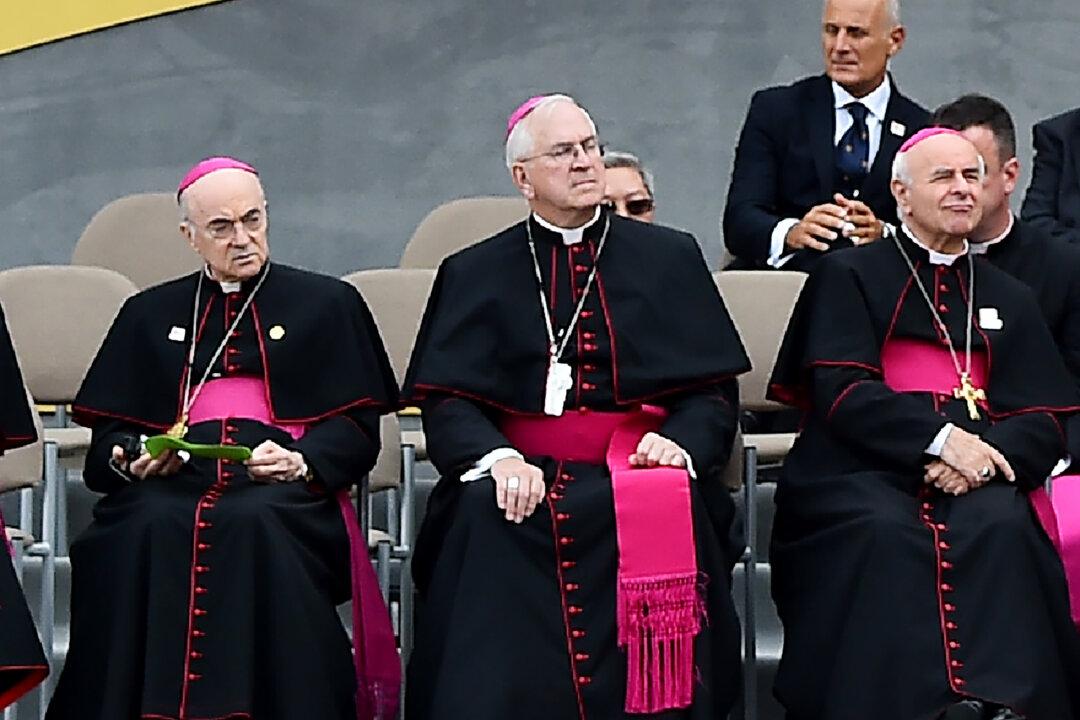“There is a group of conspirators who have worked and still work in the heart of the church” for the interests of the globalist elite, Archbishop Carlo Maria Vigano told “War Room.” He called this group the deep church and explained that their goal is to demolish the papacy and secure power.
“Most of them are identifiable, but the most dangerous are those who do not expose themselves, those whom the newspaper never mentions,” Vigano explained in an interview (pdf) with Steve Bannon, host of “War Room.”





